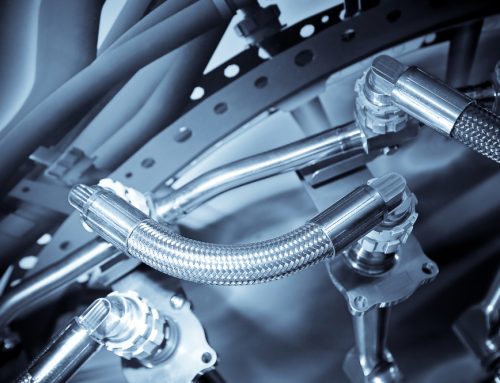What is PPS (Polyphenylene Sulphide)? Advantages and Usage Areas
What is PPS (Polyphenylene Sulfide)?
PPS (Polyphenylene Sulphide) is a thermoplastic material known for its high temperature resistance, chemical resistance and mechanical properties. PPS is an industrial polymer used especially in areas that need to perform in harsh conditions such as automotive, electronics, chemistry and aerospace. This material is widely used in a wide range of industries due to its superior properties compared to other thermoplastics. So what exactly is PPS and what advantages does it offer? Let’s get to know this powerful polymer better.
Main Properties of PPS
PPS is a material belonging to the polymer family and is particularly characterised by its resistance to high temperatures and chemicals. Here are the main properties of PPS:
High Temperature Resistance: PPS is a material that can maintain its structure even at temperatures above 200°C. Thanks to its lack of thermal degradation, it does not lose its properties even in long-term high temperature exposures. This feature makes it indispensable especially in the automotive and aerospace industries.
Chemical Resistance: PPS shows excellent resistance to many acids, alkalis and solvents. Its resistance to the corrosive effects of chemicals makes it an ideal material for use in chemical plants and laboratory equipment.
Electrical Insulation: PPS has excellent electrical insulation properties. For this reason, it is frequently preferred in electronic circuits and electrical devices. It maintains its electrical performance even under high temperature and harsh environmental conditions.
Abrasion and Friction Resistance: PPS has very high abrasion and friction resistance. This allows mechanical parts to operate without loss of performance in long-term use. Parts such as gears, bearings and bearings in mechanical systems last longer thanks to this material.
Advantages of PPS
The advantages of PPS make it a popular material in many industries. Here are the main advantages of PPS:
Long Lasting Durability: PPS offers a long service life due to its resistance to high temperatures and chemicals. The thermal and chemical resistance of this material reduces maintenance and replacement costs of products.
High Mechanical Strength: PPS is also very strong in terms of mechanical properties. Its high strength and hardness enable it to be used in demanding applications. For this reason, it is frequently preferred in the automotive, aerospace and machinery industries.
Dimensional Stability: The low thermal expansion coefficient of PPS helps it maintain its dimensional stability. In other words, it does not deform even at high temperatures. This is a great advantage especially in the production of precision parts.
Non-flammability: PPS is an intrinsically non-flammable material and does not release toxic gases during the combustion process. With this feature, it provides a safe use in the electronics and automotive sectors.
Usage Areas of PPS
The superior properties of PPS have made it an indispensable material in many different sectors. Here are the main areas of use:
Automotive Industry: PPS is widely used in automotive parts thanks to its resistance to high temperatures and resistance to chemicals. It is especially preferred in engine parts, electronic components and fuel systems.
Electricity and Electronics: The electrical insulation properties of PPS make it an ideal material for electronic circuits, switches and sockets. It exhibits a safe performance even under high temperature and electrical load.
Chemical Industry: PPS is preferred for parts exposed to chemicals such as pipes, valves and gaskets due to its chemical resistance. It offers a safe and long-lasting use in chemical plants.
Aerospace: Materials used in the aerospace industry must generally be resistant to high temperatures and harsh conditions. The thermal resistance and mechanical strength of PPS make it an ideal material for this sector.
Medical Equipment: PPS is also used in medical devices and equipment due to its biocompatibility and chemical resistance. Its resistance to sterilisation processes makes it a safe option in the medical field.
Future of PPS
As a material that responds to the ever-evolving industry demands, PPS appears in more and more application areas every day. Especially in areas requiring advanced technology such as electric vehicles, renewable energy systems and smart devices, the use of PPS is increasing.
PPS (Polyphenylene Sulphide) is a polymer that shows superior performance even under harsh conditions and is resistant to chemicals and high temperatures. It has a wide range of applications from automotive to electronics, chemistry to aerospace. In the future, PPS is expected to continue to offer innovative solutions.





